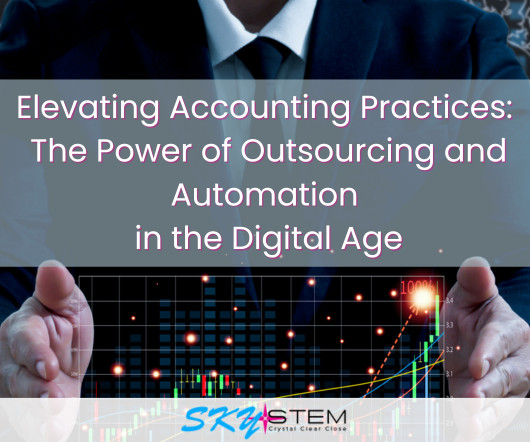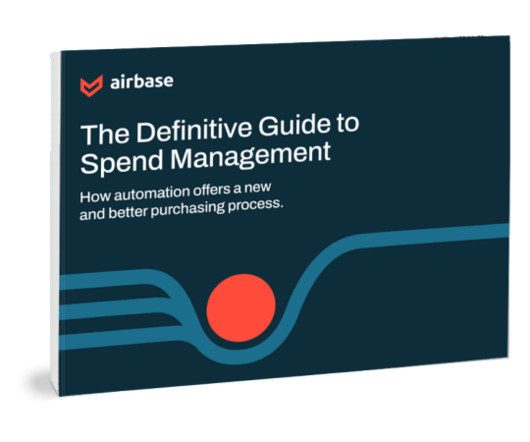Fix Issued for 3rd-Party Connectivity to QuickBooks Desktop
Insightful Accountant
AUGUST 27, 2023
Late last week, Intuit pushed out two fixes for the problem users had been having connecting their various third-party apps to QuickBooks Desktop.

Insightful Accountant
AUGUST 27, 2023
Late last week, Intuit pushed out two fixes for the problem users had been having connecting their various third-party apps to QuickBooks Desktop.

Accounting Tools
AUGUST 27, 2023
What is a Credit? A credit is an accounting entry that either increases a liability or equity account, or decreases an asset or expense account. It is positioned to the right in an accounting entry. A credit is recorded on the right side of a T account. The term also refers to a delayed payment arrangement. For example, a customer is granted $10,000 of credit on 30 day terms, which means that the customer can make purchases of up to $10,000 without having to pay the seller until 30 days have pas
This site is protected by reCAPTCHA and the Google Privacy Policy and Terms of Service apply.

Insightful Accountant
AUGUST 27, 2023
ADP’s Amy Freshman explains why culture is the key to talent attraction for accountants and their clients.

Invoicera
AUGUST 27, 2023
As your business grows, you might be grappling with the challenges legacy systems pose during the billing process. These systems have served you the best in the past, but with technological advancements, you must adopt modern, feature-rich invoicing solutions. To overcome efficiency barriers, choosing a billing software that seamlessly integrates with your existing legacy systems becomes essential.

Speaker: Nancy Wu, Head of Sales and Customer Success at SkyStem
Join us for an enlightening webinar as we delve into the transformative realm of modern accounting practices. In today's digital age, the convergence of outsourcing and automation has revolutionized how businesses manage their financial operations. In this webinar we will explore the synergistic potential of these two strategies to streamline processes, enhance accuracy, save cost and drive strategic decision-making.

IMA's Count Me
AUGUST 27, 2023
The future of accounting is here, and it's automated! In the latest episode of Count Me In, we unravel the world of accounting automation, AI, and the exciting changes that technology is bringing to the industry. From enhanced efficiency and productivity to the ethics and potential challenges of integrating artificial intelligence, this episode covers it all.

Insightful Accountant
AUGUST 27, 2023
The proposed temporary regulations provide some guidance to the pre-registration filing requirements, as well as the clarification and definition of applicable entities.
Financial Ops World brings together the best financial operations content from the widest variety of thought leaders.

Accounting Tools
AUGUST 27, 2023
Related Courses Credit and Collection Guidebook Effective Collections Essentials of Collection Law The primary tool of the collector is the collection call. However, before making a call, consider a number of preparatory steps that will make the call more efficient. Otherwise, the collector may find that the customer simply requests information that is not immediately at hand, which will require another call after the collector has found the information.

Accounting Tools
AUGUST 27, 2023
Related Courses Corporate Cash Management Payables Management Treasurer's Guidebook What is Float in Finance? Float is the interval between when a check is written and when it clears the bank account on which it was drawn. Activities included in float, and which can extend its duration, are: The time required for the payer to send a check to the payee The time required for the payee to present the check to its bank for payment The time required for the payee’s bank to present the check to the pa

Accounting Tools
AUGUST 27, 2023
Related Courses Corporate Cash Management Corporate Finance Treasurer's Guidebook What is Commercial Paper? Commercial paper is unsecured debt that is issued by an entity, and which has a fixed maturity ranging from one to 270 days. A company uses commercial paper to meet its short-term working capital obligations. It is commonly sold at a discount from face value , with the discount (and therefore the interest rate ) being higher if the term is longer.

Accounting Tools
AUGUST 27, 2023
Related Courses Cost Accounting Fundamentals What is a Factory Ledger? A factory ledger is a cluster of accounts , containing the production costs of a business. These accounts typically include direct materials expense, direct labor expense, and factory overhead expense. These accounts may contain the bulk of the expense transactions generated by a business, and so are of particular interest to the cost accountant or financial analyst who is examining the financial performance of a firm.

Speaker: Robbie Bhathal, Founder & CEO, and Matthew Acalin, Head of Credit Intelligence
In today's volatile financial environment, how confident are you in your company’s financial forecasting? To get the most accurate cash predictions that will lead to long-term financial survival, real-time data is critical. Innovative cash management strategies can lead to better credit opportunities, more sustainable growth, and long-term financial prosperity.

Accounting Tools
AUGUST 27, 2023
Related Courses Activity-Based Management Lean Accounting Guidebook Project Management What is Functional Decomposition? Functional decomposition is the breakdown of a process into its constituent parts. This action is taken in order to more easily understand how a process functions. Once a decomposition has been completed, an analysis team can then work on creating a more streamlined or cost-effective process that replaces or updates the original process.

Accounting Tools
AUGUST 27, 2023
Related Courses Accounting for Derivatives and Hedges Corporate Finance Enterprise Risk Management What is a Cash Flow Hedge? A cash flow hedge is a hedge of the exposure to variability in the cash flows of a specific asset or liability, or of a forecasted transaction, that is attributable to a particular risk. It is possible to only hedge the risks associated with a portion of an asset , liability , or forecasted transaction , as long as the effectiveness of the related hedge can be measured.

Accounting Tools
AUGUST 27, 2023
Related Courses Sales and Use Tax Accounting What is a Multiple Points of Use Certificate? Sales taxes present a particular problem for those companies that sell and purchase software that is to be concurrently used in multiple tax jurisdictions, since the sales tax for this transaction should ideally be remitted to multiple tax jurisdictions. The issue can be eliminated by obtaining a multiple points of use certificate (MPU) from the state government.

Accounting Tools
AUGUST 27, 2023
Related Courses Accounting for Bonds Accounting for Investments Corporate Finance What is a Coupon Bond? A coupon bond has interest coupons that the bond holder sends to the issuing entity or its paying agent on the dates when interest payments are due. Interest payments are then made to the submitting entity. The interest coupons are normally due on a semi-annual basis.

Advertisement
All accounting teams know what it is like to dread the inevitable month-end scaries. If there was a way to feel less burdened and maybe even a little enthusiastic to work on your month-end close and reconciliation process, would you do it? No, don't answer that, of course you would! Automate your month-end close process by up to 40% with SkyStem's ART and see how much more alive you feel!

Accounting Tools
AUGUST 27, 2023
Related Courses Corporate Cash Management Corporate Finance Treasurer's Guidebook What is Funded Debt? Funded debt is money acquired through the sale of long-term securities. The most common type of funded debt is bonds. The concept is usually applied to debt instruments that do not mature within the next 12 months. The funded debt term is derived from the interest payments being made to obtain the use of funds - in effect, the debt is being funded through the payment of interest.

Accounting Tools
AUGUST 27, 2023
Related Courses Corporate Cash Management Corporate Finance Investing Guidebook What is Fundamental Analysis? Fundamental analysis involves the use of all available information to derive the value of a company’s securities for investment purposes. This examination tells an investor whether a security should be bought, sold, or retained. Fundamental analysis can involve a broad range of information, including historical financial performance, financial structure, changes in company management, in

Accounting Tools
AUGUST 27, 2023
Related Courses Sales and Use Tax Accounting What are Sales and Use Taxes? Sales and use taxes are used by governments to derive income from the sale of tangible personal property. These taxes are a common source of revenue for state governments, and sometimes also at the county and city levels. There may also be incremental additions to this tax that are intended to last for a short period of time, until an underlying expenditure has been paid off.

Accounting Tools
AUGUST 27, 2023
Related Courses Public Company Accounting and Finance What is an Initial Public Offering? An initial public offering is the first issuance of equity by a formerly private company to the general public. This usually takes place once a business has a history of profitability and sufficient future prospects to attract investors. When the board of directors believes that a company is ready to make the step from being a private company to a public company , it hires a legal firm that specializes in S

Advertisement
The status quo for AP in small and mid-market companies is broken. It consists of messy tech stacks of siloed solutions that give rise to manual work, a lack of control, wasted spend, and unnecessary risks. The benefits of shifting to spend management are tangible, measurable, and are felt across the whole organization. Spend management is a different way of thinking and an innovation whose time has come.

Accounting Tools
AUGUST 27, 2023
Related Courses How to Audit Outsourced Functions How to Audit Payroll Optimal Accounting for Payroll Payroll Management The Problems with In-House Payroll A typical in-house payroll department has many concerns. Besides the task of issuing paychecks , it may have to do so for many company locations where tax rates differ, employees are paid on different dates, and tax reporting to the various state governments must be made on a variety of different forms.

Accounting Tools
AUGUST 27, 2023
Related Courses Business Combinations and Consolidations CPA Firm Mergers and Acquisitions Divestitures and Spin-Offs Mergers and Acquisitions What is Acquisition Accounting? When an acquirer buys another company, the acquirer must record the event under the acquisition method. This approach mandates a series of steps to record the acquisitions, which are: Measure any tangible assets and liabilities that were acquired Measure any intangible assets and liabilities that were acquired Measure the a

Accounting Tools
AUGUST 27, 2023
Related Courses Business Combinations and Consolidations CPA Firm Mergers and Acquisitions Divestitures and Spin-Offs Mergers & Acquisitions What is the Acquisition Method of Accounting? When an acquirer buys another company and uses GAAP , it must record the event using the acquisition method. This approach mandates a series of steps to record the acquisitions, which are: Measure any tangible assets and liabilities that were acquired Measure any intangible assets and liabilities that were a

Accounting Tools
AUGUST 27, 2023
Related Courses Constraint Management Operations Management What is Capacity? Capacity is the maximum sustainable rate of output that an operation can achieve. The amount of capacity limits the revenue that a business can generate. A business can improve upon this capacity level by closely managing its bottleneck operation. A business may build up an excess amount of capacity as a reserve, if it tends to experience peak loads that are well above the average level.

Speaker: Carolina Aponte - Owner and CEO, Caja Holdings LLC
In today's rapidly changing business environment, building a resilient balance sheet is crucial to the survival of any business. A resilient balance sheet allows a company to withstand financial shocks and adapt to changing market conditions. To achieve this, companies need to focus on key strategies such as maintaining adequate liquidity, managing debt levels, diversifying revenue streams, and prioritizing profitability over growth.

Accounting Tools
AUGUST 27, 2023
Related Courses Corporate Cash Management How to Audit Cash Optimal Accounting for Cash Treasurer's Guidebook What is Cash? Cash is bills, coins, bank balances, money orders, and checks. Cash is used to acquire goods and services or to eliminate obligations. Items that do not fall within the definition of cash are post-dated checks and notes receivable.

Accounting Tools
AUGUST 27, 2023
Related Courses Cost Accounting Fundamentals What is a Cost Center? A cost center is a business unit that is only responsible for the costs that it incurs. The manager of a cost center is not responsible for revenue generation or asset usage. The performance of a cost center is usually evaluated through the comparison of budgeted to actual costs. The costs incurred by a cost center may be aggregated into a cost pool and allocated to other business units, if the cost center performs services for
Let's personalize your content